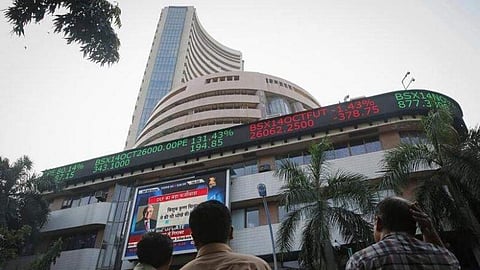

NEW DELHI: The share of foreign institutional investors (FIIs) in the NSE-listed companies fell to an 11-year low of 17.68% at the end of the March quarter, down by 51 bps from 18.19% at the end of the December quarter, according to data from primeinfobase.
The share of domestic institutional investors (DIIs) as a whole with net inflows of `108,434 crore increased to 16.05% in the March quarter from 15.96% in the preceding December quarter.
Following this change in Q4FY24, the gap between FII and DII holdings in domestic equities has narrowed to an all-time low with DII holdings now being just 9.23% lower than FII holdings. The widest gap between FII and DII holdings was in the quarter ending March 31, 2015, when DII holding was 49.82% lower than FII holding.
Market experts believe record flows into mutual funds’ equity schemes have resulted in the growing influence of DIIs in the stock market. They expect DIIs to overtake FIIs holding share in the coming quarters.
Pranav Haldea, managing director, PRIME Database Group, said Indian markets are moving towards self-reliance with the share of DIIs set to overtake that of FIIs in the next few quarters. For years, FIIs have been the largest non-promoter shareholder category in the Indian market with their investment decisions having a huge bearing on the overall direction of the market. Markets would tank when FIIs would pull out.
“This is no longer the case. DIIs along with retail investors have now been playing a strong counter balancing role,” added Haldea. The share of domestic Mutual Funds (MFs) rose to yet another all-time high of 8.92% as of March 31, powered by strong net inflows of `81,539 crore during the quarter. Meanwhile, the share of the Government (as promoter) increased to a seven-year high of 10.38% on the back of the strong performance of several PSUs.
The share of private promoters declined to a five-year low of 41% as of March 31, 2024. According to Haldea, stake sales by promoters to take advantage of bullish markets, relatively lower promoter holding in some of the IPO companies and also overall institutionalization of the market have resulted in this.